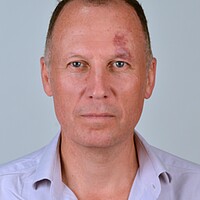Who is Pope Francis?
Loading...
| Vatican City
The new leader of 1.2 billion Roman Catholics was an unexpected choice – he wasn't on any Vatican-watcher's list of potential popes and the crowd in St. Peter's Square seemed to respond at first with a collective, "Who?" Here's some of what is known about the former Archbishop of Buenos Aires, and what his election might mean.
Q: Who is he?
He was born Jorge Mario Bergoglio, one of five children of Italian immigrants who settled in Buenos Aires. His father was a railroad worker. He entered the Jesuit order in 1958 at age 21 to study for the priesthood and was ordained in 1969. He served in various positions, earning a degree in theology, teaching, and working on a doctorate in Germany.
In 1998 he became Archbishop of Buenos Aires. In 2001, Pope John Paul II elevated him to cardinal. Cardinal Bergoglio was known for his personal humility, doctrinal conservatism, and passion for social justice. He shunned the palatial bishop's residence in favor of a small apartment. He dismissed his chauffeur and limousine and rode the bus.
Pope Francis is the first pope from the Americas and the first from outside Europe in nearly 1,300 years. (Pope Gregory III was born in Syria.) He is the first Jesuit to become pope.
Q: What is the significance of his being chosen?
Marco Politi, a well-known Vatican analyst, says the choice "signifies a completely new beginning. He's a moderate man with some reformist tendencies. He's a man of the center but open to reform and to a more positive vision of the church."
Bergoglio, while overlooked as a papal possibility by outside ob-servers at the last conclave, was reportedly the runner-up to Pope Benedict XVI in that last papal election, in 2005. He may have been discounted by many this time because of his age (76); cardinals 80 and older are not permitted to participate in the selection of a pope.
His election is seen as a victory for reform-minded cardinals and may herald radical changes for the scandal-beset Roman Catholic Church – but not likely in terms of doctrine. The reformers – prominent among them Americans such as Timothy Dolan of New York and Sean O'Malley of Boston – were dismayed by allegations of corruption and feuding in the Vatican that emerged from the Vatileaks scandal last year, when Pope Benedict's butler was caught stealing and leaking confidential documents.
The election was also a defeat for Odilo Scherer, the Archbishop of São Paolo, Brazil, who was favored by a bloc of cardinals (many of them Italian and working inside the Vatican) who were resistant to reform, Vatican-watchers said.
Q: How might his Jesuit roots determine his approach?
The Jesuits, Catholicism's largest male order, have a reputation for rigorous and independent thought and for taking seriously their vows of poverty.
The new pope's decision to adopt the name Francis, recalling the asceticism of St. Francis of Assisi, is interpreted as hugely significant and another clue as to the direction in which he may try to steer the church.
Chris Bain, the chief executive of Cafod, a Catholic aid agency, was in St. Peter's Square when the new pope first appeared on the balcony of the imposing basilica. He saw the name as having dual significance: "St. Francis of Assisi was about protecting the natural world. He was at one with nature," he says. "And St. Francis Xavier ... was a great missionary. Both could be models for a new papacy. That is very telling."
Pope Francis may make his mark in his deep commitment to issues of inequality, including poverty and globalization, as well as in tapping his outsider status at the Vatican to promote reform.
His modest lifestyle also raises the prospect of a radical culture clash with the pomp and circumstance of the Vatican, which is matched only by the British royal family for its love of costume, ceremony, and tradition.
Pope Francis, on the other hand, "takes his vows of poverty very seriously," says the Rev. Thomas Reese, a Vatican expert at the Woodstock Theological Center at Georgetown University in Washington. "It will be a challenge to live this sort of simple lifestyle in the Apostolic Palace," he says. "This may be very threatening to the papal court, especially those who like to dress up."








